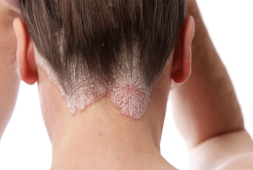
In a monumental achievement, Cape Verde has become the first sub-Saharan African country in over half a century to eradicate malaria, marking three consecutive years without a single reported case of transmission.
This significant milestone represents a triumph over a disease that claims the lives of countless individuals annually. With the complex interplay between various parasites and mosquitos now subdued, Cape Verde stands to maintain its malaria-free status, bolstered by its unique geographical characteristics as a nation of islands.
The success in Cape Verde can be attributed to a multifaceted approach to disease control. The government has implemented policies ensuring that all international travelers and migrants have access to free malaria diagnoses, a critical strategy in curtailing the spread of the parasite.
Furthermore, proactive mosquito control measures have been instrumental in preventing transmission, coupled with advancements in testing and treatment protocols that have elevated the standard of healthcare across the nation.
Cape Verde’s Health Minister, Dr. Filomena Gonçalves, told the BBC, “This success reflects the hard work and dedication of countless health professionals, collaborators, communities and international partners. It is a testimony to what can be achieved through collective commitment to improving public health.”
This achievement places Cape Verde in esteemed company alongside Mauritius, another island nation in the African seas, which accomplished malaria elimination in 1973. Unlike countries reliant solely on geographical advantages such as islands and oceans, Cape Verde’s success highlights the efficacy of targeted interventions and concerted efforts in combatting infectious diseases.
Meanwhile, in the Lao People’s Democratic Republic (Lao PDR), a recent milestone in disease eradication has garnered recognition from the World Health Organization (WHO). The country has successfully eliminated lymphatic filariasis, commonly known as elephantiasis, a debilitating parasitic disease spread by mosquitos.
This victory is particularly significant given the centuries-long history of affliction and suffering caused by the disease, which has affected millions worldwide, leading to severe disability and social stigmatization.
Lao PDR now joins the ranks of 17 other countries in the Asian and Pacific tropics that have eradicated lymphatic filariasis from their communities. This accomplishment serves as a testament to the effectiveness of persistent and determined measures, even in low-income countries, in combating neglected tropical diseases.
The eradication efforts in Lao PDR involved comprehensive strategies aimed at preventive medication distribution to at-risk communities between 2012 and 2017. These initiatives were complemented by broader public health interventions targeting malaria and dengue, including the distribution of long-lasting insecticide-treated nets and educational campaigns on health awareness.
Furthermore, the elimination of lymphatic filariasis marks the second neglected tropical disease that Lao PDR has successfully eradicated, following the achievement of eliminating trachoma as a public health problem in 2017. These successes highlight the country’s commitment to improving the health and well-being of its population through sustained efforts in disease control and prevention.
Dr. Bounfeng Phoummalaysith, the Health Minister for Lao DPR at a ceremony celebrating his ministry’s efforts, said, “Our country’s achievement has been made possible through years of collective efforts by dedicated health workers together with support from WHO and partners.”



